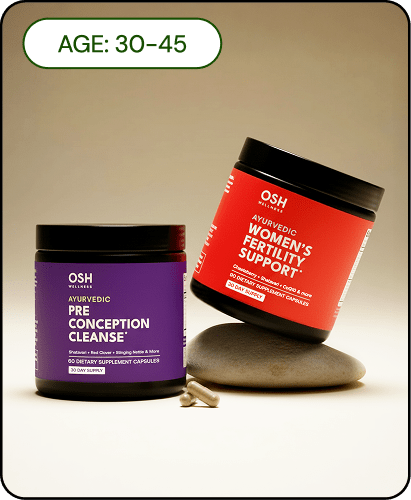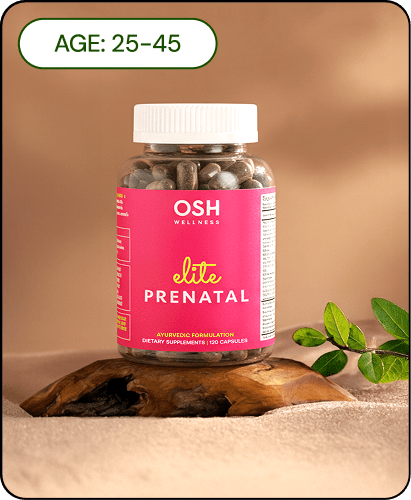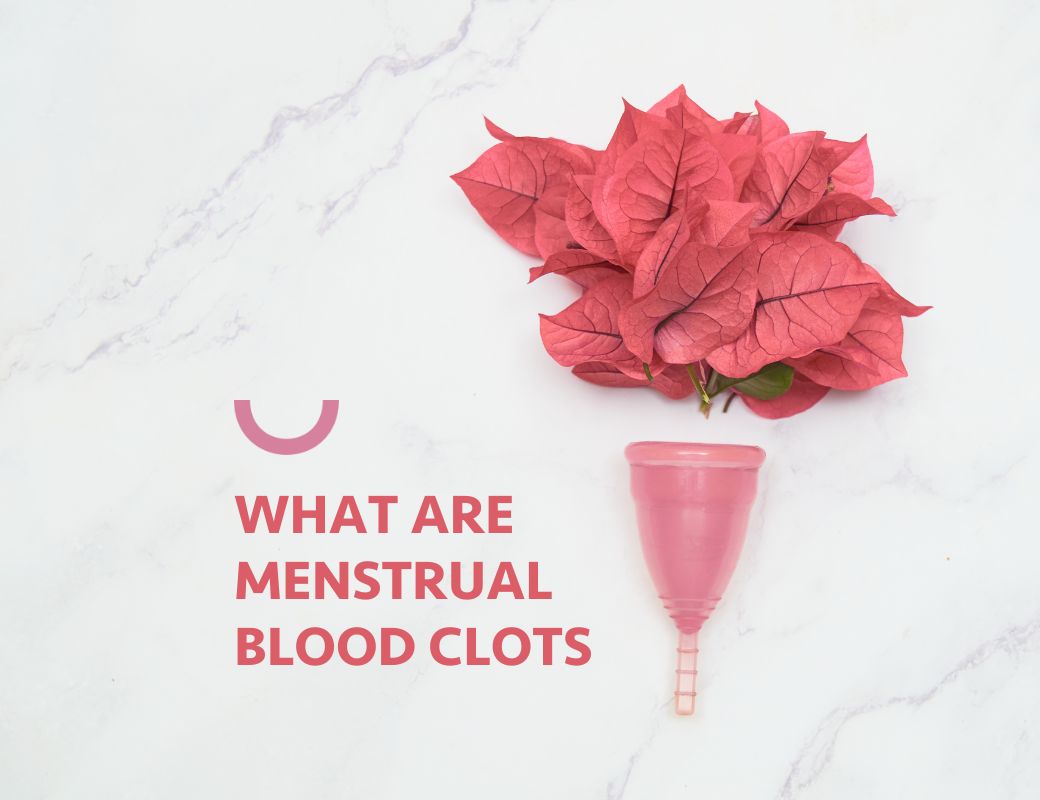Table of Contents
Transitioning off birth control can be a significant shift for your body. While modern medicine offers various methods to prevent ovulation and pregnancy, the process of restoring natural hormonal balance afterwards can be challenging.
From irregular cycles to changes in mood and energy levels, many women face these symptoms after discontinuing hormonal contraceptives. Fortunately, Ayurveda offers gentle and natural ways to support your body through this transition.
In this blog, we’ll explore how Ayurveda can help reset your reproductive system after stopping birth control, allowing you to restore balance, vitality, and overall well-being.
The Impact of Birth Control on Your Body

Hormonal contraceptives, such as the pill, IUDs, depo shots, or patches, can significantly affect your body’s natural hormone production. These methods work by altering the levels of estrogen and progesterone. Many work by preventing ovulation and regulating menstrual cycles, while others make the environment inhospitable to pregnancy.
While birth control is effective for preventing pregnancy and, in some cases, managing symptoms of conditions like PCOS, the sudden discontinuation of these synthetic hormones can throw your body off balance.
Some common symptoms women experience after stopping birth control include:
Irregular periods
Breakouts or skin issues
Fatigue and mood swings
Weight fluctuations
Ayurveda views this hormonal disruption as an imbalance in the body’s doshas (the fundamental energies that govern the body and mind), particularly Vata and Pitta, which govern processes like movement, transformation, and digestion. According to Ayurveda, the key to resetting your reproductive health is to balance these doshas and support your body’s natural detoxification processes.
Understanding Ayurveda and Reproductive Health

Ayurveda divides the body into three doshas: Vata, Pitta, and Kapha, each representing different elements of nature and body functions. For reproductive health, Vata governs movement (including the menstrual cycle and ovulation), Pitta controls heat and transformation (think metabolism and hormonal activity), and Kapha provides stability and nourishment (which is crucial for fertility and a healthy reproductive system).
When these doshas are balanced, the body can naturally regulate hormones, maintain a healthy menstrual cycle, and support fertility. But after stopping birth control, these energies can become disrupted, particularly Vata and Pitta. An Ayurvedic approach aims to bring these doshas back into alignment through diet, lifestyle, herbal remedies, and self-care practices.
Ayurvedic Diet for Hormonal Balance

Food plays a pivotal role in Ayurvedic healing. After stopping birth control, focusing on a grounding, nourishing diet can help stabilize the fundamental energies, promoting hormonal harmony.
Favor Warm, Cooked Foods
Since Vata is light, cold, and dry, consuming warm, cooked foods can help balance these qualities. Soups, stews, and warm grains like oatmeal or quinoa are excellent choices. Avoid cold, raw foods, which can aggravate Vata and make it harder for your body to regain balance.
Include Healthy Fats
Healthy fats are crucial for hormone production. Ghee (clarified butter) is a traditional Ayurvedic remedy that nourishes the reproductive tissues and supports digestion. Other healthy fat sources include avocados, olive oil, flaxseeds, and nuts.
Emphasize Pitta-Pacifying Foods
To cool Pitta and reduce excess heat in the body, focus on foods like leafy greens, cucumbers, and sweet fruits such as berries and pears. Avoid spicy, fried, and overly salty foods that can further aggravate Pitta.
Herbs and Spices for Hormonal Balance
Certain Ayurvedic herbs and spices can help reset reproductive health by promoting detoxification and balancing hormones:
Ashwagandha: This adaptogenic herb helps stabilize hormones, reduce stress, and restore energy levels.
Shatavari: Known as the “queen of herbs” for women’s health, Shatavari supports reproductive tissues and helps regulate menstrual cycles.
Turmeric: A natural anti-inflammatory, turmeric helps cool Pitta and supports liver detoxification, which is crucial for hormone metabolism.
Detoxification: A Key to Reproductive Health

After years of hormonal contraceptive use, your body may need time to cleanse and eliminate the synthetic hormones from your system. In Ayurveda, detoxification, or Panchakarma , is a cornerstone of healing. While full Panchakarma involves multiple therapies, you can start with simpler home detox methods.
Herbal Teas for Detoxification
Detox teas made with Ayurvedic herbs like ginger, fennel, and dandelion root help stimulate digestion and cleanse the liver. Drinking warm water with lemon in the morning can also support detoxification.
Oil Massage (Abhyanga)
Self-massage with warm oils like sesame or coconut oil can help calm Vata and Pitta while promoting lymphatic drainage, which supports your body’s natural detox pathways.
Managing Stress and Supporting Emotional Balance

The hormonal shifts after stopping birth control can affect more than just your physical health; they can also impact your mental and emotional well-being. Ayurveda emphasizes the importance of balancing the mind and body for overall health.
Meditation and Pranayama
Daily meditation and breathing exercises (pranayama) are excellent ways to calm Vata and Pitta, reduce anxiety, and promote mental clarity. Practices like alternate nostril breathing (Nadi Shodhana) can be particularly helpful in balancing the body’s energies.
Sleep and Rest
Adequate rest is essential for hormone production and stress management. Aim for 7-9 hours of sleep each night and establish a consistent sleep routine by going to bed and waking up at the same time each day. Avoid stimulating activities in the evening, such as late-night screen time, which can aggravate Vata and disturb sleep.
Herbs to Support Reproductive Health After Birth Control

In addition to a balanced diet and detoxification practices, Ayurvedic herbs can be particularly beneficial in helping the body recover its natural rhythm.
Chaste Tree Berry (Vitex): Although not traditionally Ayurvedic, Vitex is widely used in natural medicine to balance hormones and regulate menstrual cycles. It can be particularly helpful for women experiencing irregular periods after stopping birth control.
Shatavari: Shatavari is a uterine tonic that helps support healthy hormonal balance.
Red Clover: Rich in isoflavones, which act as phytoestrogen, red clover helps to regulate menstrual cycles and restore balance.
30 day post-pill cleanse
If you are looking for a comprehensive cleanse after stopping birth control, Osh Wellness Pre-Conception Cleanse is formulated with Ayurvedic botanicals that help reset the hormonal balance and cleanse the body of synthetic hormones. Take for 3 months to see the full effect, though most women see their normal cycles return within 30 days.
If you are TTC after stopping birth control, switch to Women's Fertility Support after 1 month, or get the 3-month Cleanse & Conceive Bundle.
Restoring Balance Naturally
Stopping birth control is a significant step, and your body may need time to adjust to its natural rhythms again. Adopting an Ayurvedic approach can support your reproductive system with nourishing foods, detoxification practices, and stress management techniques. Remember, balance takes time—be patient with your body as it works hard to reset itself.








